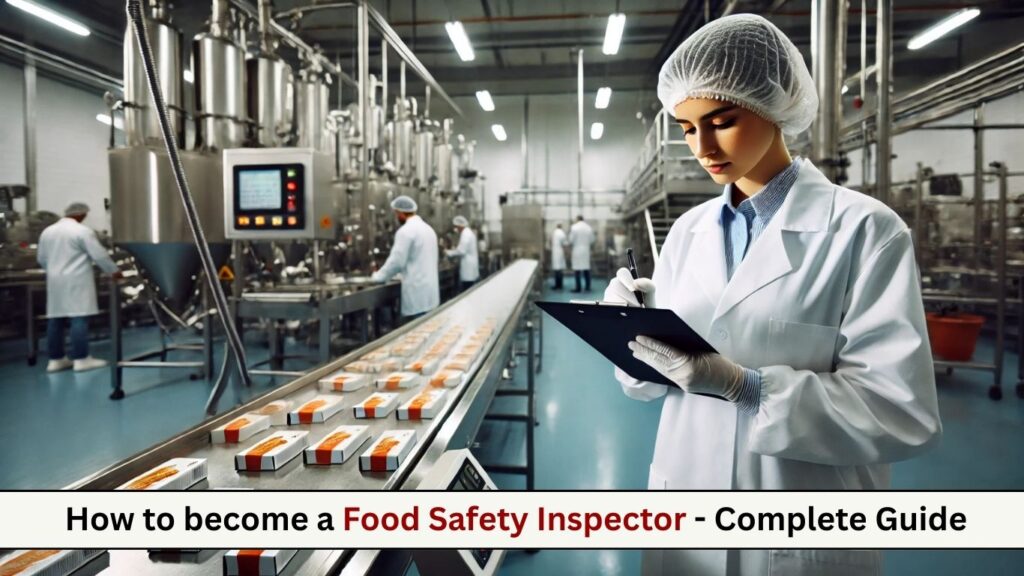
Introduction to Food Safety Inspection
Food safety inspectors play a critical role in protecting public health by ensuring food products meet government safety standards. With increasing globalization of food supply chains and growing consumer awareness about foodborne illnesses, this profession has become more vital than ever.
This comprehensive guide covers:
- Historical evolution of food safety regulation
- Day-to-day responsibilities of inspectors
- Global salary ranges and career growth potential
- Educational pathways and certifications
- Step-by-step career entry strategies
- Future trends in food safety technology
History of Food Safety Inspection
The concept of food regulation dates back to ancient civilizations, but modern systems emerged through these key developments:
Timeline of Food Safety Milestones
- 1200s: English “Assize of Bread” establishes first food purity laws
- 1850s: Dr. John Snow links cholera to contaminated water in London
- 1906: U.S. Pure Food and Drug Act passes after Upton Sinclair’s “The Jungle”
- 1963: Codex Alimentarius establishes international food standards
- 2011: FDA Food Safety Modernization Act shifts focus to prevention
- 2020s: Blockchain technology enables end-to-end supply chain traceability
Roles and Responsibilities
Food safety inspectors serve as gatekeepers of public health across various settings:
Primary Duties
- Facility Inspections
- Evaluate cleanliness and sanitation
- Verify proper equipment function
- Check pest control measures
- Process Audits
- Monitor HACCP compliance
- Review temperature controls
- Assess cross-contamination risks
- Documentation Review
- Verify supplier certifications
- Check product labeling accuracy
- Maintain inspection records
- Enforcement Actions
- Issue violation notices
- Recommend corrective actions
- Initiate product recalls when necessary
Work Environments
- Government agencies (FDA, USDA, FSSAI)
- Private food manufacturers
- Third-party certification bodies
- Import/export inspection stations
- Restaurant and retail chains
Salary and Career Outlook
Compensation varies by location, sector, and experience level:
2024 Salary Benchmarks
| Country | Entry-Level | Mid-Career | Senior-Level |
|---|---|---|---|
| USA | $45,000 | $65,000 | $85,000+ |
| UK | £28,000 | £40,000 | £55,000+ |
| Canada | CAD 50,000 | CAD 70,000 | CAD 90,000+ |
| Australia | AUD 60,000 | AUD 80,000 | AUD 100,000+ |
| India | ₹3-5 lakhs | ₹6-8 lakhs | ₹10-15 lakhs |
Job Growth: The field is projected to grow 8-10% annually due to:
- Expanding food regulations
- Globalized supply chains
- Rising consumer safety expectations
Qualifications and Certifications
A combination of education and specialized training is required:
Educational Pathways
- Minimum Requirements:
- Bachelor’s in Food Science
- Microbiology
- Public Health
- Advanced Degrees:
- Master’s in Food Safety
- Regulatory Affairs
- Essential Certifications:
- Certified Professional – Food Safety (CP-FS)
- HACCP Certification
- ISO 22000 Lead Auditor
Key Skills
- Technical Knowledge: Food microbiology, chemistry
- Analytical Skills: Risk assessment, data interpretation
- Communication: Report writing, interview techniques
- Attention to Detail: Observation, documentation
How to Become a Food Safety Inspector
Step 1: Educational Foundation
- Earn relevant science degree
- Take food safety courses (Coursera, FDA trainings)
- Study food regulations (CFR Title 21, EU 178/2002)
Step 2: Gain Practical Experience
- Intern with food manufacturers
- Volunteer with health departments
- Work in quality assurance roles
Step 3: Obtain Certifications
- Start with HACCP training
- Pursue industry-specific credentials
- Maintain continuing education
Step 4: Job Search Strategies
- Government civil service exams
- Food industry quality positions
- Third-party auditing firms
Step 5: Career Advancement
- Specialize in import/export
- Move into management
- Transition to policy development
Future of Food Safety Inspection
The profession is evolving with technological advancements:
Emerging Trends
- Smart Inspection Tools:
- AI-powered image recognition
- Portable DNA analyzers
- IoT temperature monitoring
- Preventive Approaches:
- Predictive analytics
- Whole-genome sequencing
- Digital traceability systems
- Global Harmonization:
- Mutual recognition agreements
- Standardized certification
- Blockchain verification
Growth Areas
- Cannabis food products
- Novel food ingredients
- Online food delivery oversight
Conclusion
Food safety inspection offers a rewarding career protecting public health with strong growth potential. As food systems become more complex, inspectors who combine scientific knowledge with technological adaptability will be in high demand.
Start building your qualifications today to enter this vital profession at the intersection of science, regulation, and public service.













Post Comment